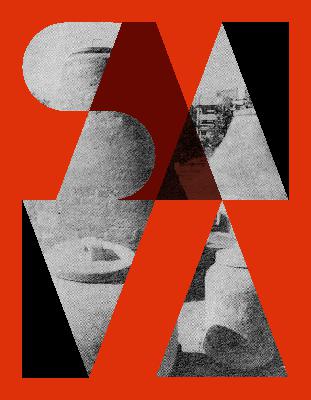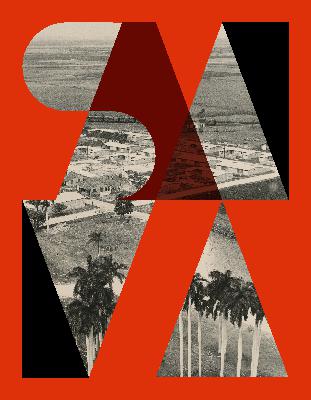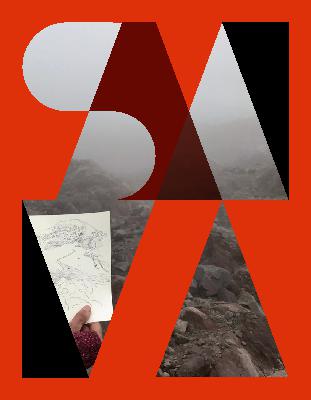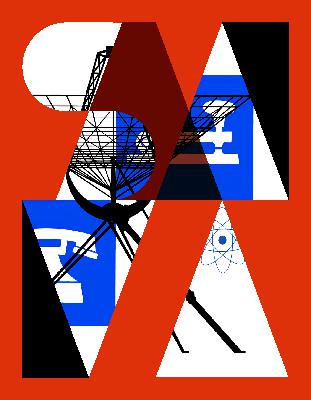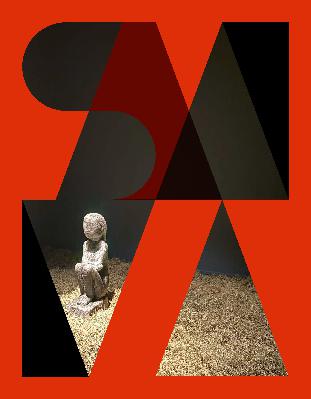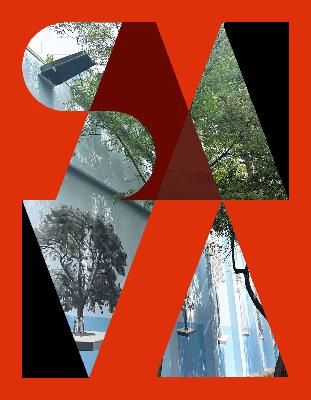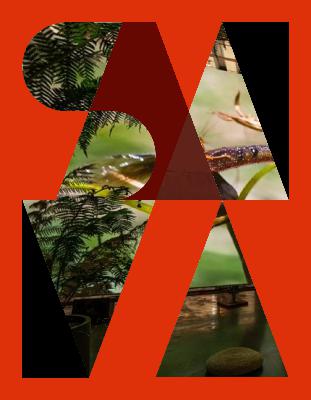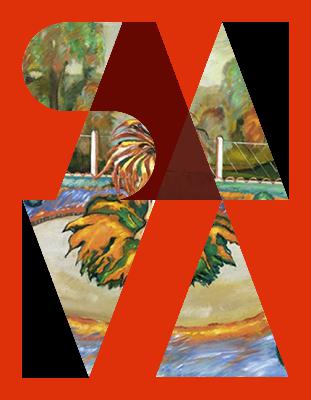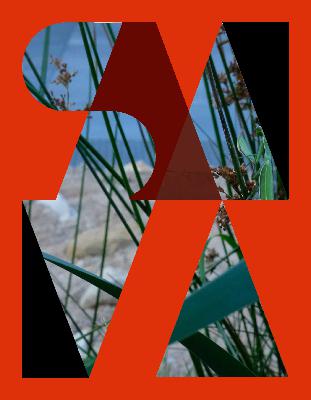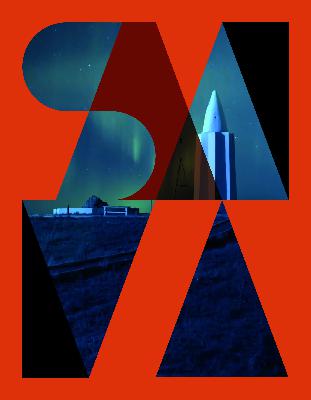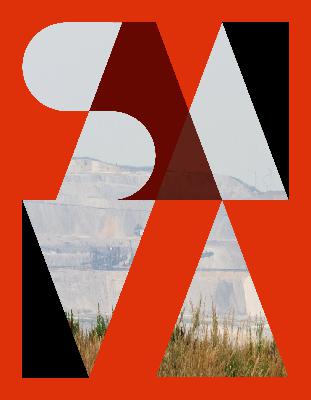Discover Left to be Desired
Left to be Desired

Left to be Desired
Author: Socialist Anthropocene in the Visual Arts
Subscribed: 2Played: 0Subscribe
Share
© 2023
Description
A Socialist Anthropocene in the Visual Arts Podcast. Tune in to hear Maja & Reuben Fowkes talk to artists and researchers about their practice and exchange ideas at the intersection of ecology, climate change, art and the Socialist Anthropocene.
12 Episodes
Reverse
Episode 12 of the SAVA podcast Left to Be Desired features a conversation with artist and researcher Ângela Ferreira. Left to Be Desired is available to listen to on Apple Podcasts, Spotify, Amazon Music/Audible and Audacy. You can also access it via the podcast website: https://lefttobedesired.libsyn.com/site Left to Be Desired explores the distinctiveness of the socialist path through the Anthropocene by bringing together artistic and scholarly insights into the ecologies of global socialism. Maja & Reuben Fowkes invite artists and researchers to talk about their practice and exchange ideas at the intersection of ecology, climate change, art and the Socialist Anthropocene. Ângela Ferreira Continuing our exploration of global perspectives on the Socialist Anthropocene, in this episode of Left to Be Desired, Maja and Reuben Fowkes talk to artist and researcher Ângela Ferreira about her work on revolutionary Mozambique. We learn that the artist's main focus is on the first post-independence years, when the government opted for a tolerant form of socialism that was open to forms of creative experimentation, before the adoption of the Soviet model of social and political organization. The podcast includes discussion of Ferreira's collaborative project Experimental Field (2024), which explores the material and archival residues, as well as the social and environmental dimensions, of the radical agrarian practices developed at a university agricultural laboratory in the 1970s. About the Speaker Ângela Ferreira Ângela Ferreira is an artist and researcher teaching Fine Art at the University of Lisbon (FBAUL) in Portugal and in Mozambique. Ferreira's multi-disciplinary practice is concerned with the ongoing impact of colonialism and post-colonialism on contemporary society, an investigation that is conducted through in-depth research and distillation of ideas into concise and resonant forms. The contribution of this artistic practice lies in the construction of a solid and non-pamphleteering artistic decolonial discourse. The source of her archival reference materials often triangulates the three countries of her personal history: South Africa, Mozambique and Portugal, which she represented Portugal at the 52nd Venice Biennale in 2007.
Episode 11 of the SAVA podcast Left to Be Desired features a conversation with Reinaldo Funes Monzote conducted by Maja and Reuben Fowkes and Sorcha Thomson. Left to Be Desired is available to listen to on Apple Podcasts, Spotify, Amazon Music/Audible and Audacy. You can also access it via the podcast website: https://lefttobedesired.libsyn.com/site Left to Be Desired podcast explores the distinctiveness of the socialist path through the Anthropocene by bringing together artistic and scholarly insights into the ecologies of global Socialism. Maja & Reuben Fowkes will invite artists and researchers to talk about their practice and exchange ideas at the intersection of ecology, climate change, art and the Socialist Anthropocene. Reinaldo Funes Monzote This episode of Left to be Desired engages Reinaldo Funes Monzote in conversation on the environmental history of Cuba and its place in the Socialist Anthropocene. Maja and Reuben Fowkes, joined by SAVA Research Fellow Sorcha Thomson, discuss with Reinaldo his work on the different eras of Cuban environmental transformation - from the entangled processes of deforestation and sugar cultivation since 1492 to the projects of geotransformación after the 1959 Revolution and what they tell us about attitudes to nature under Cuban socialism. The conversation reflects on the impact of the end of the Soviet Union on Cuba in the 1990s and how the need to find new means of survival shaped eco-socialist and agroecological initiatives. In tracing these histories, Reinaldo complicates binary visions of the ecological imprint of socialist Cuba, instead highlighting an adaptability of Cuban approaches to the environment since the Revolution, with variable ecological impacts, in relation to the shifting conditions and legacies of colonial extraction, imperial exploitation, and global socialism that have shaped the Caribbean island. About the Speaker Reinaldo Funes Monzote Reinaldo Funes Monzote is a Professor of History at the University of Havana and Coordinator of the Geo-Historical Research Program at the Antonio Núñez Jiménez Foundation in Cuba. He has held visiting professorships at universities in Spain, Brazil, Puerto Rico, and the US, and has been a Fellow at Princeton's Davis Center for Historical Studies and the Hamburg Institute for Advanced Studies. Reinaldo is also a member of the Academy of History of Cuba and President of the Cuban Society for the History of Science and Technology.
Episode 10 of the SAVA podcast Left to be Desired features a conversation with Lisa Blackmore, researcher, curator and educator working with art and water cultures in Latin America. Left to Be Desired is available to listen to on Apple Podcasts, Spotify, Amazon Music/Audible and Audacy. You can also access it via the podcast website: https://lefttobedesired.libsyn.com/site Left to Be Desired explores the distinctiveness of the socialist path through the Anthropocene by bringing together artistic and scholarly insights into the ecologies of global socialism. Maja & Reuben Fowkes invite artists and researchers to talk about their practice and exchange ideas at the intersection of ecology, climate change, art and the Socialist Anthropocene. Lisa Blackmore on Troubled Waters This episode of Left to be Desired seeks points of reference and comparison between the Anthropocene histories of Latin America and the environmental transformation of Europe and Central Asia during the socialist period. Lisa Blackmore shares insights into the brutal hydroforming of the rivers of Sao Paulo, and the dramatic consequences of paving over, channelizing and even inverting the flow of its liquid arteries through flash floods made more frequent and perilous by climate breakdown. The conversation with Maja and Reuben Fowkes also explores the ways in which artists have sought to restore connections with hydro-worlds and engage with post-human aqueous ontologies. While eco-socialist approaches can be identified in localized forms of hydrocommoning that incorporate post-human, biocentric and spiritual approaches to land and water, "degrowth is not on the table" in systems governed by extractive capitalism. About the Speaker Lisa Blackmore is a researcher, curator and educator, working with art and water cultures in Latin America. Since 2018, she has been directing entre—ríos, a platform whose collaborative methodologies (re)connect diverse communities to bodies of water through curatorial, editorial and pedagogical projects. She is Senior Lecturer in Art History and Interdisciplinary Studies at the University of Essex, UK. In 2023, she was a British Academy Mid-Career Fellow for her project "Imagining the Hydrocommons: Art, Water and Infrastructure in Latin America." Her recent publications include "Water" in Handbook to Latin American Environmental Aesthetics (2023) and the co-edited volume Hydrocommons Cultures: Art, Pedagogy and Care Practices in the Americas (2024). https://lisablackmore.net/
Episode 9 of the SAVA podcast Left to Be Desired features a conversation between SAVA Research Fellow Alexander Petrusek and Mario Bianchini, Research Fellow at the Center for the Study of Contemporary History (ZZF) in Potsdam. Left to Be Desired is available to listen to on Apple Podcasts, Spotify, Amazon Music/Audible and Audacy. You can also access it via the podcast website: https://lefttobedesired.libsyn.com/site Left to Be Desired podcast explores the distinctiveness of the socialist path through the Anthropocene by bringing together artistic and scholarly insights into the ecologies of global Socialism. Maja & Reuben Fowkes will invite artists and researchers to talk about their practice and exchange ideas at the intersection of ecology, climate change, art and the Socialist Anthropocene. Mario Bianchini: Utopia, Entropy, and the GDR's Socialist Anthropocene Recorded in the heart of the former East German capital of Berlin, episode 9 of Left to Be Desired is a conversation between SAVA Research Fellow Alexander Petrusek and Mario Bianchini, Research Fellow at the Center for the Study of Contemporary History (ZZF) in Potsdam. Alexander and Mario, both historians of ideals and utopia in East Germany, discuss the evolution of scientific-technological utopia in the 1960s, its influence over the socialist imaginary of the decade, and how practicing this utopia in part devastated the country's environment in the 1970s and 1980s. Alexander and Mario also examine alternatives to growth-first economics that arose from the GDR's ecological crisis, as well as the activist circles who sought to practice them from within, and through, the Socialist Anthropocene. About the Speakers Mario Bianchini Mario Bianchini is a research fellow at the Potsdam Leibniz-Center for Contemporary Historical Research (ZZF), where his research focuses on the history of technology, utopia, and energy in East and West Germany. His work has appeared in Science, Technology, and Human Values and German Studies Review. His first book manuscript, Real Existing Utopia, is soon to be completed. Alexander Petrusek Alexander Petrusek is a historian of modern Germany, the environment, and the global Cold War. He is a SAVA Research Fellow at PACT, UCL Institute of Advanced Studies. His research has included investigating East German support for the Namibian independence movement during the Border War in southern Africa, and how the East German practices of solidarity criticized, and at times uncomfortably reflected, the South African state's self-designated 'civilizing mission' in Namibia and its underlying exploitative extractivism.
Episode 8 of the SAVA podcast Left to be Desired features a conversation with artists Anca Benera and Arnold Estefan. Left to Be Desired is available to listen to on Apple Podcasts, Spotify, Amazon Music/Audible and Audacy. You can also access it via the podcast website: https://lefttobedesired.libsyn.com/site Left to Be Desired explores the distinctiveness of the socialist path through the Anthropocene by bringing together artistic and scholarly insights into the ecologies of global socialism. Maja & Reuben Fowkes invite artists and researchers to talk about their practice and exchange ideas at the intersection of ecology, climate change, art and the Socialist Anthropocene. Anca Benera and Arnold Estefan: Along the River Timiș Recorded on the banks of the river Timiș in Romania, episode 8 of Left to Be Desired is a conversation with SAVA Creative Fellows Anca Benera and Arnold Estefan, who reflect on their solo exhibition Unworlding at Art Encounters Foundation in Timișoara (on view till 1 March 2025) and also the unexpected story of the drought stone Who Controls the Weather, which they previously submerged in the river for an uncertain future. The discussion with Maja and Reuben Fowkes flows on to touch on some of the works in their survey exhibition, from the installation Debrisphere, a starting point for their artistic explorations of the Anthropocene, to Missing Mountain, a project developed through their creative fellowship with the SAVA project. About the Speakers Anca Benera and Arnold Estefan are collaborators who have worked together since 2011, currently based in Vienna and Bucharest. Their work in installation, video and performance uses research-based methodologies to reveal the invisible patterns that lie behind certain historical, social, or geopolitical narratives. Their recent work investigates the phenomenon of man-made landscapes around the world, where the making and marking of landscape (as a form of spatial modification) goes hand in hand with heightened state violence and the overexploitation of resources. They are the recipients of The Birgit Jürgenssen Prize 2022, awarded by The Austrian Federal Ministry for Education, Arts and Culture and the Academy of Fine Arts Vienna and are Creative Fellows at UCL's Postsocialist Art Centre in London.
Episode 7 of the SAVA podcast Left to be Desired features a conversation with artists Vlatka Horvat (Croatia), Oto Hudec (Slovakia), and Serban Savu (Romania) in their respective pavilions in the Venice Biennale 2024. Left to be Desired is available to listen to on Apple Podcasts, Spotify, Amazon Music/Audible and Audacy. You can also access it via the podcast website: https://lefttobedesired.libsyn.com/site Left to be Desired podcast explores the distinctiveness of the socialist path through the Anthropocene by bringing together artistic and scholarly insights into the ecologies of global Socialism. Maja & Reuben Fowkes will invite artists and researchers to talk about their practice and exchange ideas at the intersection of ecology, climate change, art and the Socialist Anthropocene. 60th Venice Biennale with Vlatka Horvat, Șerban Savu, and Oto Hudec. In episode 7 of Left to be Desired, Maja and Reuben Fowkes visit the artists Vlatka Horvat (Croatia), Șerban Savu (Romania), and Oto Hudec (Slovakia) in their respective national pavilions in the 60th Venice Biennale 2024. The conversations aimed to discuss issues around ecology, sustainability, the legacies of socialism, and how they relate to the Biennale's theme of the year "Foreigners Everywhere", as a focus on artists who are themselves foreigners, immigrants, expatriates, exiles, and refugees, particularly those who move between the Global South and the Global North. Vlatka Horvat talked about the potentialities of circulating art through alternative logistics of migrant networks. The conversation with Șerban Savu was focused on his artistic project around the relationship between work and leisure. And finally, Oto Hudec's proposal showcased the protection of trees and crucial role of protestors against deforestation. About the Speakers Vlatka Horvat (Croatia) Vlatka Horvat is a Croatian-born London-based artist who uses a range of media such as sculpture, installation, drawing, performance, photography, video, and writing. In her work, she explores the relationship between the body and its surroundings, as well as questions related to presence and the ways in which things occupy and share space. She has had exhibitions at institutions such as the Museum of Contemporary Art Zagreb, PEER (London), Kunsthalle Wien (Vienna), Hessel Museum – Bard Center for Curatorial Studies (Annandale-on-Hudson, NY), and MoMA PS1 (New York City), and her work has been included in the Croatian Pavilion at the Biennale Architettura 2018 (Venice), Aichi Triennale (Nagoya), and the 11th Istanbul Biennale. Șerban Savu (Romania) Șerban Savu lives and works in Cluj, Romania. He attended the University of Art and Design in Cluj, Romania (2001), after which he was awarded a two-year postgraduate research grant to Venice. Considered part of the group of painters known as the Cluj-school, Savu's figurative paintings skilfully rendered canvases capture the daily existence of contemporary Romanians at work and leisure. Savu's works were exhibited at Centre Pompidou, Paris; Fondazione Nicola Del Roscio, Rome; Galerie Rudolfinum, Prague; Museo Pietro Canonica a Villa Borghese, Rome; National Museum of Contemporary Art, Bucharest; Le Lait Centre D'art Contemporain, Albi; PLATEAU, Samsu. Oto Hudec (Slovakia) Oto Hudec is an artist and activist lives and works in Košice, Slovakia. His projects often use stories and utopian visions to explore climate change, globalization, migration, and the life of minority communities. SOLO SHOWS: 2019: "We Are All Carbon," Gandy Gallery, Bratislava, Slovakia, 2017; "House of Isabel," Gallery OFF Format, Brno, Czech Republic; "Archipelago," Kunsthalle Bratislava, Slovakia; "Prague Day after the Air Raid," Artwall Gallery Prague, Czech Republic; "The Man Who Travels with Bees," Gandy gallery, Bratislava, Slovakia; 2014: "Nor Tortoise Shell nor Blades of Grass," MMCA Chang Dong National Art Studio, Seoul, South Korea; 2013: "Nomadia," Mutuo Espaco de Arte, Barcelona, Spain; "Tales from the Other Seas," Espaço Gesto, Porto, Portugal; 2011: "Traffic Jam," Miscelanea space, Barcelona, Spain.
Episode 6 of the SAVA podcast Left to be Desired features a conversation with artist Zheng Bo on the politics of plants on the occasion of their work Bamboo as Method at Somerset House in London. Left to be Desired is available to listen to on Apple Podcasts, Spotify, Amazon Music/Audible and Audacy. You can also access it via the podcast website: https://lefttobedesired.libsyn.com/site Left to be Desired podcast explores the distinctiveness of the socialist path through the Anthropocene by bringing together artistic and scholarly insights into the ecologies of global Socialism. Maja & Reuben Fowkes will invite artists and researchers to talk about their practice and exchange ideas at the intersection of ecology, climate change, art and the Socialist Anthropocene. How Plants Practice Politics with Zheng Bo In episode 6 of Left to be Desired, artist Zheng Bo talks to Maja and Reuben Fowkes about their ecological art practice, artistic perspectives on the histories of socialism and the installation Bamboo as Method at Somerset House. Meeting Bo again in London was an opportunity to find out about their distinctive approach to breaking down the barriers between humans and nature by reconnecting with plants. Of particular interest from a SAVA perspective are works that deal with the complex social and environmental histories of Chinese socialism, including the period of the Great Leap Forward in the late 1950s. The discussion also broached the issue of the particular forms of instrumentalization of nature under socialism and the extent to which plant resistance and agency was a factor in these entwined more-than-human histories. As the podcast suggests, the radicalization of their approach to botanical politics is driven by the urgency of the climate crisis of the Anthropocene. About the Speaker ZHENG Bo is an ecoqueer artist of ethnic Bai heritage. Through drawing, dance and film, they cultivate kinship with plants: ferns in Taiwan, moss in Scandinavia, beech trees in Germany, an umbrella thorn acacia in the Arabian Desert. For them, art does not arise from human creativity, but more-than-human intimacy. Their ecological practice contributes to an emergent planetary indigeneity. Recent projects include solo exhibitions at Gropius Bau and Göteborgs Konsthall, public commissions at Somerset House and Jameel Arts Centre, and participation in the 59th Venice Biennale. Their works are in the collections of Tate Modern, Power Station of Art, and Hammer Museum, among others. https://zhengbo.org/
Episode 5 of the SAVA podcast Left to be Desired is now live, and takes the form of a walk around the exhibition Art in the Age of the Anthropocene at KUMU Art Museum in Tallinn with curator Linda Kaljundi. Left to be Desired is available to listen to on Apple Podcasts, Spotify, Amazon Music/Audible and Audacy. You can also access it via the podcast website: https://lefttobedesired.libsyn.com/site Left to be Desired podcast explores the distinctiveness of the socialist path through the Anthropocene by bringing together artistic and scholarly insights into the ecologies of global Socialism. Maja & Reuben Fowkes will invite artists and researchers to talk about their practice and exchange ideas at the intersection of ecology, climate change, art and the Socialist Anthropocene. Art in the Age of the Anthropocene In episode 5 of Left to be Desired, Linda Kaljundi talks to Maja and Reuben Fowkes about the exhibition Art in the Age of the Anthropocene at KUMU Art Museum in Tallinn. The recording was made during a special tour of the exhibition for members of the SAVA Research Team during the SAVA Baltic Research Trip. Art historian Linda Kaljundi, who is both one of the curators of the exhibition and Professor of Cultural History at the Estonian Academy of Arts, began her walk through by pointing to the variety of approaches to Soviet Estonian ecological art. Emblematic of the diversity of such environmental engagements, she spoke about Ilmar Malin's Fading Sun (1968) as bringing together dystopian visions of the future, fears of nuclear Armageddon and concerns over soil pollution. Extractivism and the history of the Estonian shale gas industry as a motor of Stalin era industrialization were also addressed, embodied in socialist realist works such as the Rise of Industry in the Estonian SSR. Further points of discussion included how and when environmental concerns appeared in official art of the Soviet era, the relation between the visibility of Indigenous communities in art and the velocity of resource extraction in Siberia, and the intersection of gender and ecology in representations of agricultural work. The transformation of the countryside emerges as a key site of environmental contestation, with Olga Terri's individualized portraits of cows countering their resourcification in industrial farming and a greenhouse overflowing with cucumbers alluding to the chemical pollution that was a poisonous byproduct of monocultural agriculture. About the Speaker Linda Kaljundi is a professor of cultural history at the Estonian Academy of Arts and a senior research fellow at Tallinn University. Specializing in Baltic history, historiography, and cultural memory, as well as in environmental history, she is first and foremost interested in finding new, transnational, and entangled perspectives on the region's history and heritage. Kaljundi has published and edited collections on history and history writing, historical fiction, and images. At the Kumu Art Museum, Tallinn, she co-curated the exhibitions History in Image—Image in History: The National and Transnational Past in Estonian Art (2018), The Conqueror's Eye: Lisa Reihana's In Pursuit of Venus (2019–20), and the new permanent exhibition Landscapes of Identity: Estonian Art, 1700–1945 (2021).
We are pleased to announce that episode 4 of Left to be Desired is now live. Maja and Reuben Fowkes converse with Romanian theorist Ovidiu Ţichindeleanu on the Ecological Socialism of the Future. Left to be Desired is available to listen to on Apple Podcasts, Spotify, Amazon Music/Audible and Audacy. Left to be Desired podcast explores the distinctiveness of the socialist path through the Anthropocene by bringing together artistic and scholarly insights into the ecologies of global Socialism. Maja & Reuben Fowkes will invite artists and researchers to talk about their practice and exchange ideas at the intersection of ecology, climate change, art and the Socialist Anthropocene. Ovidiu Ţichindeleanu on the Ecological Socialism of the Future For episode 4 of Left to be Desired we followed up on Ovidiu Ţichindeleanu's presentation at the SAVA Research Week, exploring in more depth his proposal for an Ecological Socialism of the Future. The conversation with Maja and Reuben Fowkes addressed the west-leftist disregard for the lived experience of actually existing or real socialism, here in the case of Romania, touched on his autoethnographic recovery of the eco-socialist potentialities of life in Cluj during the 1970 and 1980s, and meandered through the specific case of a river-based ecozonal economy experimented with during the period. Ovidiu Ţichindeleanu is a Romanian philosopher, translator and culture theorist, writing on critical social theory, decolonial thought, alternative epistemologies, histories of senses and cultural history. He is editor of the journal of contemporary art and critical theory IDEA arts + society and co-founder of the fluid curatorial collective Committee for Resurrection.
In episode 2 of Left to be Desired, Paris and Tashkent based artist Saodat Ismailova talks to Maja & Reuben Fowkes about her work and the turbulent legacies of Soviet power for Central Asia. The conversation flows through the ecological disaster caused by the damming of the great rivers of the Amu Darya and Syr Darya and the social and environmental consequences of turning biodiverse agriculture into a cotton monoculture, to the motives of Soviet campaigns for the emancipation of women. Emerging from the discussion of films such as Two Horizons, Stain of Oxus and Her Five Lives is the layering of twentieth century Soviet and much more ancient histories and cultures in the life of the Eurasian Steppe. Saodat Ismailova grew up in post-Soviet Uzbekistan and is now based in Tashkent and Paris. Ismailova's filmography addresses themes of national memory, women's sovereignty, ritualism and mortality. Drawing from ancestral knowledge, folklore, animism and traditional spiritual practices of the region, her films have a mysterious, hypnotic quality, emphasising long takes reminiscent of the slow cinema aesthetic. In 2021 she founded Davra, a research group devoted to the study, documentation and dissemination of Central Asian culture. In 2022 her work was selected for both the Venice Biennale and Documenta. Three of her short films were recently screened in Tate Modern, London. Socialist Anthropocene in the Visual Arts is the first large-scale interdisciplinary research project that institutes the Socialist Anthropocene as a new field of study within the critical corpus concerned with challenging and decentring the West-centric discourses of the Anthropocene, asserting the constitutive role of the twentieth century environmental histories of Socialism in the formation of the new geological age. The SAVA project was awarded in the ERC Consolidator Grant competition and is funded through a UKRI Frontier Research grant. It will run at the Postsocialist Art Centre UCL from 2022 to 2027. It is led by Maja and Reuben Fowkes. Maja and Reuben Fowkes are art historians, curators and co-directors of the Postsocialist Art Centre (PACT) at Institute of Advanced Studies, University College London. Their publications include Art and Climate Change (Thames & Hudson, 2022), Central and Eastern European Art Since 1950 (Thames & Hudson, 2020), Ilona Németh: Eastern Sugar (Sternberg Press, 2021), The Green Bloc: Neo-avant-garde Art and Ecology under Socialism (CEU Press, 2015) and a special issue of Third Text entitled Actually Existing Artworlds of Socialism (2018). Recent curatorial projects include the exhibitions Colliding Epistemes at Bozar Brussels (2022) and Potential Agrarianism at Kunsthalle Bratislava (2021). Their Horizon Europe project on the Socialist Anthropocene in the Visual Arts is supported by a UKRI Frontier Research grant. For more, see: www.translocal.org
For the first episode of Left to be Desired, Maja & Reuben Fowkes interview Vienna-based artist Oliver Ressler on the occasion of his solo show Barricading the Icesheets at The Showroom. They discuss Oliver's work, climate change & justice, capitalism & extraction, Extinction Rebellion, the ecologies of post-socialism and the potential of eco-socialist futures. Oliver Ressler is an artist and filmmaker who produces installations, projects in public space, and films on issues such as economics, democracy, migration, the climate crisis, forms of resistance and social alternatives. Ressler has had solo exhibitions at Berkeley Art Museum, USA; Museum of Contemporary Art, Belgrade; Centro Cultural Conde Duque, Madrid; Alexandria Contemporary Arts Forum, Egypt; The Cube Project Space, Taipei; Kunsthaus Graz, Graz and comprehensive solo exhibitions at Wyspa Institute of Art, Gdansk; Lentos Kunstmuseum, Linz; Centro Andaluz de Arte Contemporaneo – CAAC, Seville; SALT Galata, Istanbul; MNAC – National Museum of Contemporary Art, Bucharest; and Cultural Centre of Belgrade. Since 2019 Ressler directs Barricading the Ice Sheets, a research project on the climate justice movement, funded by the Austrian Science Fund, that lead to an exhibition at Camera Austria in Graz in September 2021. Socialist Anthropocene in the Visual Arts is the first large-scale interdisciplinary research project that institutes the Socialist Anthropocene as a new field of study within the critical corpus concerned with challenging and decentring the West-centric discourses of the Anthropocene, asserting the constitutive role of the twentieth century environmental histories of Socialism in the formation of the new geological age. The SAVA project was awarded in the ERC Consolidator Grant competition and is funded through a UKRI Frontier Research grant. It will run at the Postsocialist Art Centre UCL from 2022 to 2027. It is led by Maja and Reuben Fowkes. Maja and Reuben Fowkes are art historians, curators and co-directors of the Postsocialist Art Centre (PACT) at Institute of Advanced Studies, University College London. Their publications include Art and Climate Change (Thames & Hudson, 2022), Central and Eastern European Art Since 1950 (Thames & Hudson, 2020), Ilona Németh: Eastern Sugar (Sternberg Press, 2021), The Green Bloc: Neo-avant-garde Art and Ecology under Socialism (CEU Press, 2015) and a special issue of Third Text entitled Actually Existing Artworlds of Socialism (2018). Recent curatorial projects include the exhibitions Colliding Epistemes at Bozar Brussels (2022) and Potential Agrarianism at Kunsthalle Bratislava (2021). For more, see: www.translocal.org


